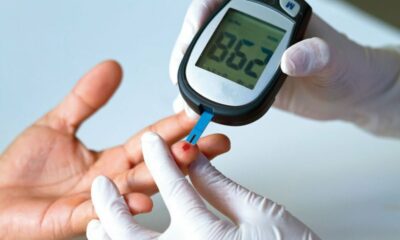Type 2 diabetes is a chronic condition that affects the way your body regulates glucose (blood sugar). One of the most effective ways to manage Type 2 diabetes is through weight loss. Studies show that losing even 5-10% of body weight can significantly improve insulin sensitivity, lower blood sugar levels, and reduce the need for diabetes medication. However, weight loss for diabetics involves careful planning, as you must balance losing weight while maintaining stable blood sugar levels.
1. Focus on a Balanced, Diabetic-Friendly Diet
The first and most important step in any weight loss journey for diabetics is adopting a balanced diet that not only helps you lose weight but also keeps your blood sugar levels in check.
Low-Carbohydrate Diet
A low-carbohydrate diet can be effective for weight loss and controlling blood sugar levels in Type 2 diabetes. Reducing carbs minimizes glucose spikes, helping stabilize blood sugar. It’s important, however, to avoid extreme low-carb diets without proper medical guidance. Focus on eating complex carbohydrates that have a low glycemic index (GI), such as whole grains, legumes, and vegetables.
Lean Protein Intake
Protein helps you feel full for longer, curbing hunger pangs and reducing the need for frequent snacking. Opt for lean proteins like chicken breast, turkey, fish, tofu, and plant-based proteins like lentils and beans. Protein also helps in preserving muscle mass, which is essential for maintaining a healthy metabolism during weight loss.
Healthy Fats
Including healthy fats in your diet, like those found in nuts, seeds, avocados, and olive oil, can promote satiety without raising blood sugar. These fats are also heart-healthy, which is crucial for diabetics who are at higher risk of cardiovascular disease.
Portion Control
Monitoring portion sizes is critical when trying to lose weight. Even healthy foods can contribute to weight gain if eaten in large quantities. Use tools like portion control plates, measuring cups, and food diaries to track your meals. Aim for smaller, frequent meals throughout the day to maintain blood sugar stability.
2. Exercise Regularly with a Focus on Both Cardio and Strength Training
Exercise plays a vital role in managing Type 2 diabetes and aiding weight loss. It helps the body use insulin more efficiently, controls blood sugar levels, and burns calories.
Cardio Workouts
Cardiovascular exercises, such as walking, swimming, cycling, and aerobics, help burn calories and improve heart health. Aim for at least 150 minutes of moderate-intensity cardio per week. Brisk walking is one of the easiest and most effective forms of cardio for diabetics. It doesn’t require special equipment, and it can be done almost anywhere.
Strength Training
Strength or resistance training is another key component of a weight loss plan for diabetics. By building muscle, you boost your metabolism, allowing you to burn more calories even when at rest. Strength training can include weight lifting, bodyweight exercises like squats and lunges, or resistance band exercises. Engage in strength training two to three times a week.
High-Intensity Interval Training (HIIT)
HIIT involves short bursts of intense activity followed by brief periods of rest or low-intensity exercise. This form of exercise has been shown to improve insulin sensitivity and promote fat loss, particularly around the abdominal area, which is critical for diabetics as excess belly fat is linked to insulin resistance.
3. Monitor Blood Sugar Levels During Weight Loss
As you lose weight, your body’s insulin needs may change. It’s crucial to closely monitor your blood sugar levels to ensure they remain stable. Hypoglycemia (low blood sugar) can be a risk when making dietary changes or increasing physical activity.
Track Blood Sugar Levels
Check your blood sugar levels regularly, especially after meals and exercise. This will help you understand how your body responds to different foods and activities. Continuous glucose monitors (CGM) can be particularly helpful for providing real-time insights into your blood sugar trends.
Adjust Medications as Needed
If you’re on insulin or other diabetes medications, talk to your healthcare provider about adjusting your dosage as you lose weight. Losing weight may reduce your need for medications, but it’s important to make any changes under professional guidance to avoid complications like hypoglycemia.
4. Make Sustainable Lifestyle Changes
Sustainable weight loss requires long-term lifestyle changes rather than short-term dieting. Focus on making gradual, realistic changes that you can stick to over time.
Set Realistic Goals
Start by setting small, attainable goals. For example, aim to lose 1-2 pounds per week, which is considered a healthy and sustainable rate of weight loss. Celebrate small victories along the way to stay motivated.
Avoid Fad Diets
Many fad diets promise rapid weight loss but can be harmful to diabetics. These diets often involve extreme calorie restriction or the elimination of entire food groups, which can lead to nutrient deficiencies and imbalanced blood sugar levels. Instead, focus on a balanced, nutrient-rich diet that supports long-term health.
Mindful Eating
Mindful eating involves paying attention to what and how much you’re eating, as well as recognizing hunger and fullness cues. Slow down while eating, savor your food, and avoid distractions like watching TV. Mindful eating can prevent overeating and help you develop a healthier relationship with food.
5. Manage Stress and Sleep for Weight Loss
Both stress and lack of sleep can interfere with weight loss and blood sugar control in diabetics.
Stress Management
Chronic stress leads to the release of cortisol, a hormone that can increase blood sugar levels and promote fat storage, particularly in the abdominal area. Stress also often triggers unhealthy eating habits like emotional eating. Incorporating stress-reduction techniques such as deep breathing exercises, yoga, meditation, or engaging in hobbies can help you manage stress more effectively.
Get Enough Sleep
Poor sleep can affect your body’s ability to regulate insulin and may lead to increased hunger and cravings, making weight loss more difficult. Aim for 7-9 hours of quality sleep per night to support weight loss and better blood sugar control.
6. Seek Support and Professional Guidance
Weight loss can be challenging, especially when managing a chronic condition like diabetes. Seeking professional support can make the journey easier and more effective.
Work with a Registered Dietitian or Diabetes Educator
A registered dietitian or diabetes educator can help you create a personalized weight loss plan that takes your unique needs and goals into account. They can provide guidance on portion control, meal planning, and how to manage blood sugar levels while losing weight.
Join a Support Group
Joining a weight loss or diabetes support group can provide motivation, accountability, and encouragement. Whether in-person or online, connecting with others who are going through similar challenges can be a powerful tool in your weight loss journey.
Use Technology to Your Advantage
There are numerous apps and devices available that can help track your progress. Apps like MyFitnessPal can help you log your food intake, while fitness trackers can monitor your physical activity. Continuous glucose monitors (CGMs) can help you track how your blood sugar responds to different foods and activities.
7. Consider Medical Interventions When Necessary
In some cases, medical interventions may be necessary to achieve significant weight loss. These options should be considered carefully and only under the guidance of a healthcare provider.
Prescription Medications
There are medications available that can help with weight loss and have been shown to improve blood sugar control in people with Type 2 diabetes. Medications like GLP-1 receptor agonists (e.g., semaglutide) not only help with weight loss but also improve insulin sensitivity.
Bariatric Surgery
For individuals with severe obesity and Type 2 diabetes, bariatric surgery may be an option. Procedures such as gastric bypass or sleeve gastrectomy have been shown to result in significant weight loss and, in many cases, remission of diabetes.
Conclusion
Losing weight is one of the most effective ways to manage Type 2 diabetes. By adopting a balanced, diabetic-friendly diet, incorporating regular exercise, monitoring blood sugar levels, and making sustainable lifestyle changes, you can achieve healthy weight loss and improve your overall health. Remember to seek support from healthcare professionals and consider medical interventions if necessary. While the journey to weight loss may take time, the benefits for your blood sugar control and long-term health are well worth the effort.

 General Medicine1 week ago
General Medicine1 week ago
 Diabetology2 weeks ago
Diabetology2 weeks ago
 Diabetology2 weeks ago
Diabetology2 weeks ago
 General Medicine1 week ago
General Medicine1 week ago
 Diabetology5 days ago
Diabetology5 days ago
 Diabetology5 days ago
Diabetology5 days ago
 Diabetology3 days ago
Diabetology3 days ago
 Diabetology5 days ago
Diabetology5 days ago













